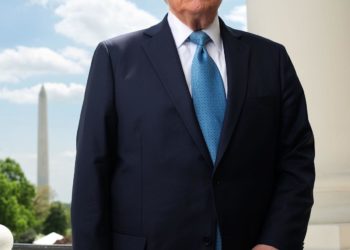How the Trump Administration Flipped on Kilmar Abrego Garcia
At each stage in the political and legal fight over Kilmar Abrego Garcia’s wrongful deportation, the Trump administration has pushed...
Katy Perry’s ‘Cringe’ Concert Debut Roasted by Fans
And... we have blast off on Katy Perry’s “Lifetimes” tour.The pop star began the first leg of her “Lifetimes” tour...
Immigration is Trump’s strongest issue, but many say he’s gone too far, a new AP-NORC poll finds
WASHINGTON (AP) — President Donald Trump’s handling of immigration remains a point of strength as he takes wide-ranging actions to...
Trump claims ‘200’ tariff deals, phone call with Chinese President Xi in wide-ranging interview
President Donald Trump, in a wide-ranging interview with Time magazine published Friday, claimed he's already "made 200 deals" on tariffs...
Trump administration reverses abrupt terminations of foreign students’ US visa registrations
The Trump administration has restored the student visa registrations of thousands of foreign students studying in the United States who...
Product shortages and empty store shelves loom with falling shipments from China
Retailers are warning that U.S. consumers could once again be faced with empty store shelves and the kind of supply...
Ex-US Rep. George Santos sentenced to over 7 years in prison for fraud and identity theft
CENTRAL ISLIP, N.Y. (AP) — Disgraced former U.S. Rep. George Santos, who lied about his life story and defrauded donors,...
Car bomb kills senior Russian general in Moscow
A senior Russian military figure was killed Friday after a vehicle exploded in the town of Balashikha in the Moscow...
Pedro Pascal slams J.K. Rowling as ‘heinous loser’ over anti-trans views: ‘Disgusting’
Pedro Pascal is calling out J.K. Rowling for her "disgusting" anti-trans viewpoints.The "Last of Us" star, 50, slammed the "Harry...
When is Pope Francis’s funeral, who will be there and what happens next
Pope Francis, who died on Monday morning at the age of 88, will be laid to rest on Saturday in...















